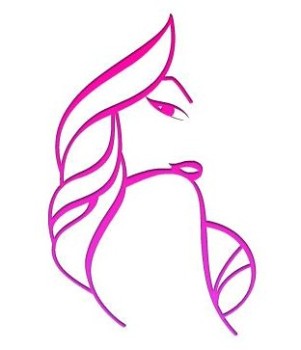
In 2007, there was buzz around the drag community that RuPaul was shooting some kind of show in her garage for drag queens. I remember queens like Jewels talking about it after a Sunday Brunch drag show in Long Beach at Hamburger Mary’s (although it wasn’t called that at the time it was Mick & Mack’s). I remember thinking… “her garage?”
Fast forward to 2018 and the 10th season of RuPaul’s Drag Race hosted by Emmy Award Winning RuPaul Charles, there is no doubt the Race has risen like a Phoenix or a penis (let’s get real, who knows about any other Phoenix than Season 3’s Phoenix O’Hara – who didn’t rise too far in the competition, unfortunately). But never would anyone have thought the Drag would have so greatly influenced mainstream media.
The problem with this influence is the responsibility that comes with it. A group who had previously been so looked over as “too-feminine”, “wannabe girls”, and even “trannies” had been given a stage much larger than they were used to being on. They were put in front of potentially billions of people. Anyone with access to a TV and eventually an internet connection could see what they said and did. Those who identified with their favorite queens were living on every word. “Throwing shade” “reading” “cutting a bitch’s wigs” while in a competition was the light they were seen in.
But what about the parts of drag that we don’t see? The charitable events drag queens attend and throw to raise money for kids, or those with HIV/AIDS, or any other great cause. The shows they put on at clubs that are near empty, but they’re up in that gig with the hopes of their event getting some exposure and gaining momentum. The hours they spend to get ready to make tips, or if they’re lucky $50 – $100 bucks. The messages of love, persistence, and inspiration they convey to their audience is ever present.
RuPaul calls Drag Race the “Olympics of drag” and tells the girls they need to bring their all when they’re on that show. The thing is, some of these girls have been grinding and pushing and going through the struggle for years and years.
The girls who haven’t been on that show or even other competitive drag shows like Dragula, don’t have the luxury of booking managers, recognition, thousands of followers on social media, and whatever else we deem as “success” in drag. In my opinion, they’ve been running a triathlon, an iron-man even, without so much as a medal at the end of the race. The Olympian has been going long before their appearance on the show.
While Drag Race, Dragula and shows like them, give the queens selected for the shows “success”, their responsibility to their audience and fans is an example of kindness, love, and caring for each other. The title gained as a “star of the show” is not a relief of responsibilities as a leader of the community. These queens must be mindful young people are watching, seeing mentors, role-models, and aspirations to be similar. The influence of Drag is awesome, let’s ensure the influence includes inclusivity, support, and encouragement. Remember where we come from.
Ours is a community that has been (and still is) judged, condemned, spat on, beat up, and even bombed all for loving who we love. There are enough external forces attempting to tear us down. Value each other. Value life. Value that people are struggling with things we cannot imagine struggling with. Be grateful for what you do have and be encouraging because when one of us is successful, we’re all successful.
Know that your success is our success, your voice is our voice, if you’re saying bad things, we’re saying bad things. If you’re threatening someone’s life over their opinion about your favorite drag queen, we’re threatening someone’s life. It’s not fair that we’re all judged by the actions of a few, but let’s make those actions positive ones. If we unite, be positive, and agree to disagree when we differ, we’ll be a beacon.
